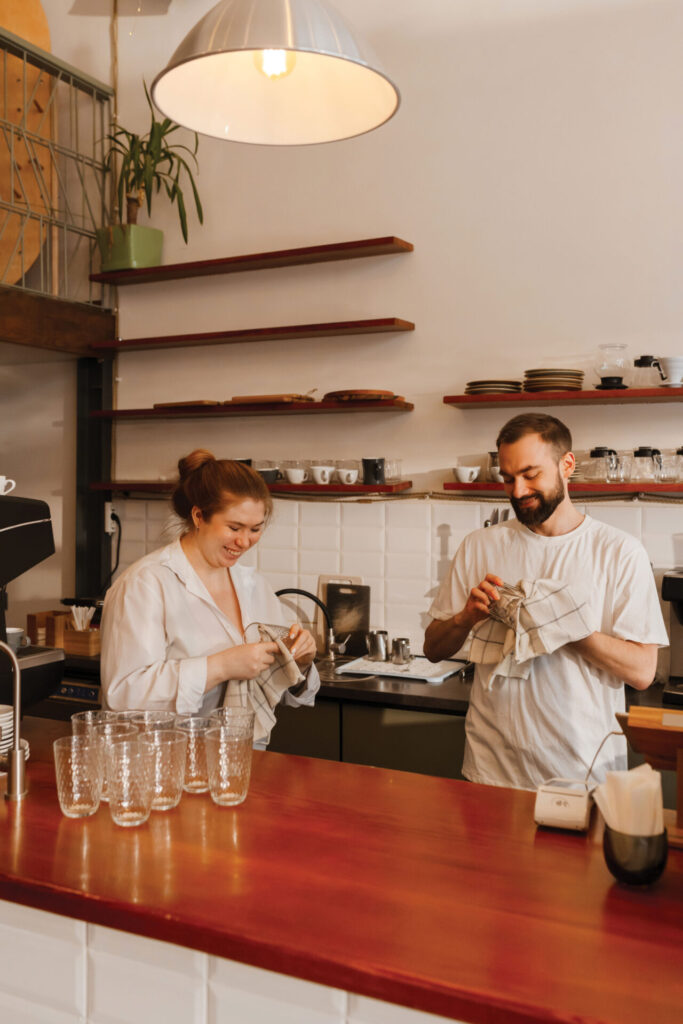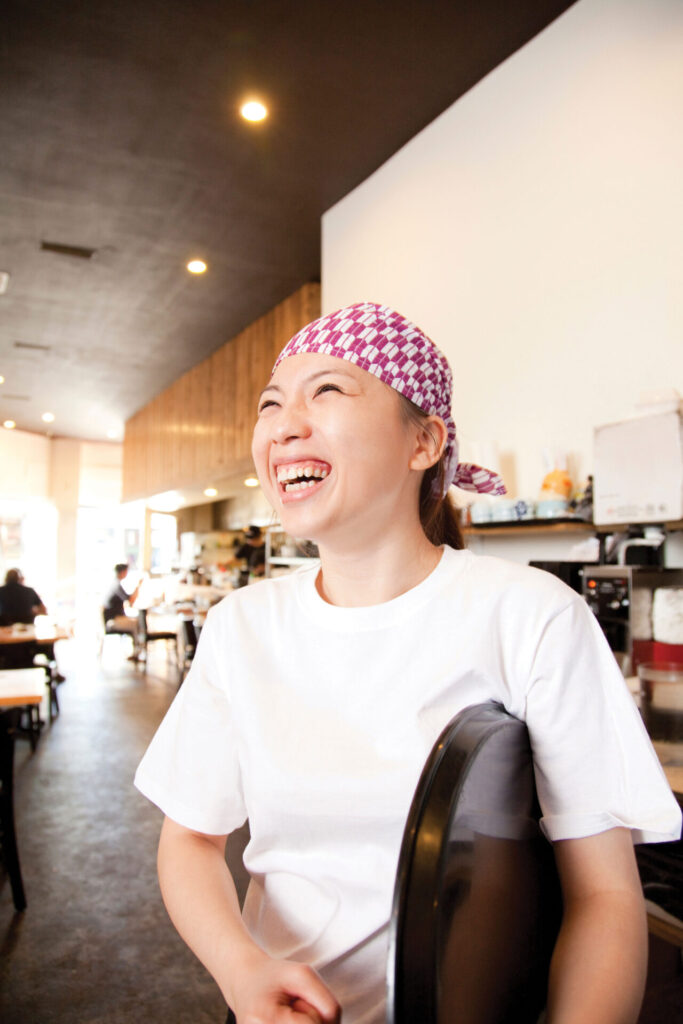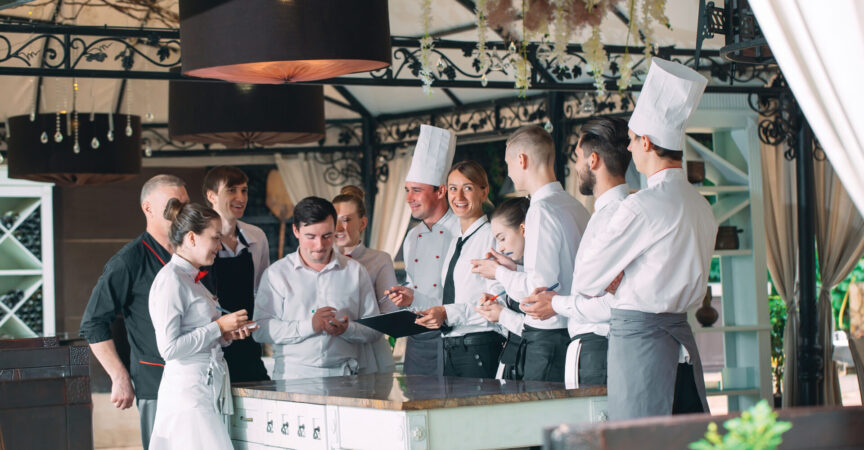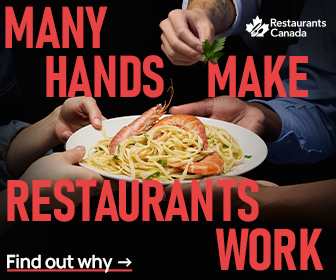Manifesting Culture to Build Tomorrow’s Hospitality Leaders
I’ve been in the hospitality industry long enough to watch the cycle repeat: panic over staffing shortages, a scramble to recruit, and the inevitable turnover that comes from treating retention like an afterthought. Lately, I hear the same refrain from operators across Canada: “We’re hiring—but we can’t seem to find the right people.” The job boards are flooded with resumes, but most applicants aren’t sticking. And those with real potential? They’re often gone before they’ve had a chance to grow.
Here’s the uncomfortable truth: our biggest workforce issue isn’t recruitment. It’s retention. And perks aren’t going to fix it. If you want people to stay, you have to give them something worth staying for.
The industry loves to talk about culture—which is great—but if we don’t back it up with real action, it’s just chatter. I’m not talking about staff outings, trust falls or well-crafted mission statements. I’m talking about a living, breathing work environment that makes people feel seen, supported, and proud of what they do.
For too long, the hospitality industry has been saddled with a reputation for offering jobs, not careers—a narrative rooted in outdated ideas about long hours, low pay and limited opportunities to advance. But that perception belies the truth of a dynamic and vibrant industry rich with unique career opportunities few other sectors can match—especially for those with ambition, creativity, and a passion for people. It’s one of the rare fields where talent and tenacity can outpace traditional credentials, enabling rapid career growth from entry-level to leadership. It provides a dynamic environment where entrepreneurial thinking is rewarded, whether by climbing the ranks within a global brand or launching a business of your own. The industry also opens doors to international mobility, diverse specializations—from operations to events, culinary arts to technology—and the chance to shape guest experiences in meaningful, memorable ways. Above all, hospitality is a people-first profession that empowers individuals to lead teams, build communities, and drive cultural and economic impact.
If hospitality is to retain the talent it desperately needs, industry leaders must take responsibility for rewriting the story. That means more than recruitment campaigns or policy changes—it starts with modelling the belief in the long-term value of sector careers, beginning with their own. When leaders openly invest in people, prioritize mentorship, and demonstrate that success in hospitality is not the exception but the expectation, they create a culture that attracts—and keeps—the next generation of passionate professionals.



If you’re serious about keeping good people, start here.
1. Create Clarity—and Stick to It
When I consult for restaurant groups, I always ask about training. Nine times out of ten, what I find is chaos disguised as flexibility. Schedules are vague. Expectations are unclear. Advancement is talked about but never clearly mapped out. And the impact is predictable: good people burn out, disengage, or leave for something more structured.
What today’s workforce—especially Gen Z—wants isn’t platitudes and perks. It’s clarity. The younger generation craves structure, not because they lack initiative, but because the rest of the world is so noisy and uncertain. In an environment that’s constantly in motion, clarity is a form of psychological safety.
That means documenting your values, defining what success looks like, and outlining a path forward. If someone wants to move from host to manager, do they know what it takes? Do they know when the opportunity might arise? Or are they stuck performing the right moves and hoping you’ll “see their potential” before they give up or burn out?
You don’t need a corporate HR team to put clarity into practice. You just need to be clear, consistent and honest.
2. Be the Culture You Keep Talking About
Culture isn’t defined by your décor, your menu, or the clever tagline on your website. It lives in the energy of your team during the Friday night rush. It shows up in how you communicate, how you respond when someone calls in sick, and how you handle mistakes. Culture is built through everyday behaviours that quietly say, “You matter here.” That’s not just culture—that’s leadership.
If you’re constantly frazzled, reacting to fires, and just skating by, you’re not just surviving—you’re shaping a culture of disengagement. Energy is contagious, and inconsistency sends the wrong kind of signal.
The strongest leaders I’ve worked with rarely need to talk about culture. They live it. They model the standards they expect. They take their role seriously. They communicate clearly. They celebrate the small wins. And above all, they show their team what it looks like to lead with pride—even in the chaos of service.
3. Mentorship Isn’t a Luxury—It’s a Lever
The word mentorship can feel intimidating, conjuring up ideas of formal programs, outside consultants, or hours of structured one-on-ones. But in restaurants, real mentorship often happens in the flow of service: trusting someone with a new task, asking their opinion, or inviting them to learn something new. These small moments build confidence, capability and connection.
At its core, mentorship is about spotting potential early and acting on it. When a server is invited to shadow a manager or a line cook is asked to train a new teammate, it’s not just delegation—it’s a signal: We see you. We believe in you. You matter here. These gestures build a sense of progress, one of the most powerful motivators at work. And if hospitality is truly about people, then nurturing our teams must be just as intentional as caring for our guests.
4. Don’t Confuse Pay with Value
Compensation matters, but it’s not the whole story. I’ve seen operators offer above-market wages and still struggle to keep staff. I’ve also seen restaurants where the pay is just “okay,” but turnover is low, and loyalty runs deep. The difference? Culture.
Employees tend to stay longer where they feel like part of something. Where they’re treated as people, not just labour. Where the shift feels purposeful—not like a grind. Places like Gusto, Terroni, or The Keg are known for their high retention. They haven’t nailed culture by accident; they’ve built it intentionally. It’s not flawless, but it’s consistent. And people stay not for the paycheque, but for how they feel: seen, valued, and part of the team. The biggest mistake operators make is assuming retention can be bought. But belonging doesn’t show up on a pay stub.
5. Adapt or Be Left Behind
Hospitality never stands still. There’s always a fire to put out, a shift to fill, a delivery that’s late. In the chaos, it’s easy to slip into survival mode. But constant reaction leaves no room for momentum, and momentum is what fuels culture, development and retention.
Great leaders don’t just put out fires—they build fireproof systems. They stay curious, revisit what’s working, and adjust when feedback shifts. They recognize that different generations, backgrounds and personalities are motivated in different ways, and they lead accordingly, recognizing that adaptability is the engine of a successful and well-staffed hospitality workplace.
About Val…
Valerie Upfold has extensive experience in the hospitality industry, having worked in hotels and restaurants in Canada and Australia. Her roles have included Restaurant Manager, Sommelier and HR Director. At Oliver & Bonacini Hospitality, Val spent 15 years—five as Manager and Sommelier at Canoe Restaurant in Toronto, and ten as HR Director, where she established the HR department and grew the company from 100 to over 1,500 employees. With over ten years in hospitality recruitment and HR consulting, Val is a trusted expert for renowned brands. She also conducts food TV casting, identifying top talent for the screen. Val contributes to Centennial College and George Brown College hospitality advisory committees, has lectured at the University of Guelph’s HAFA program, and speaks at industry events nationwide. She volunteers with Catalyste+ to support the hospitality sector in developing markets.









